Karina Pierce grew up on a sheep and suckler farm in Co Wicklow. She lives in Roundwood with her husband Denis and two children, Niamh and Conor. She has a PhD in swine nutrition, is a former lecturer in ag science at UCD, and is currently senior development advisor in the Food Division of Enterprise Ireland.
In 2019 she was awarded a Nuffield Scholarship which saw her travel the world to gather insights into her Nuffield report which explored how robust research could help future-proof the the Irish agri-food sector.
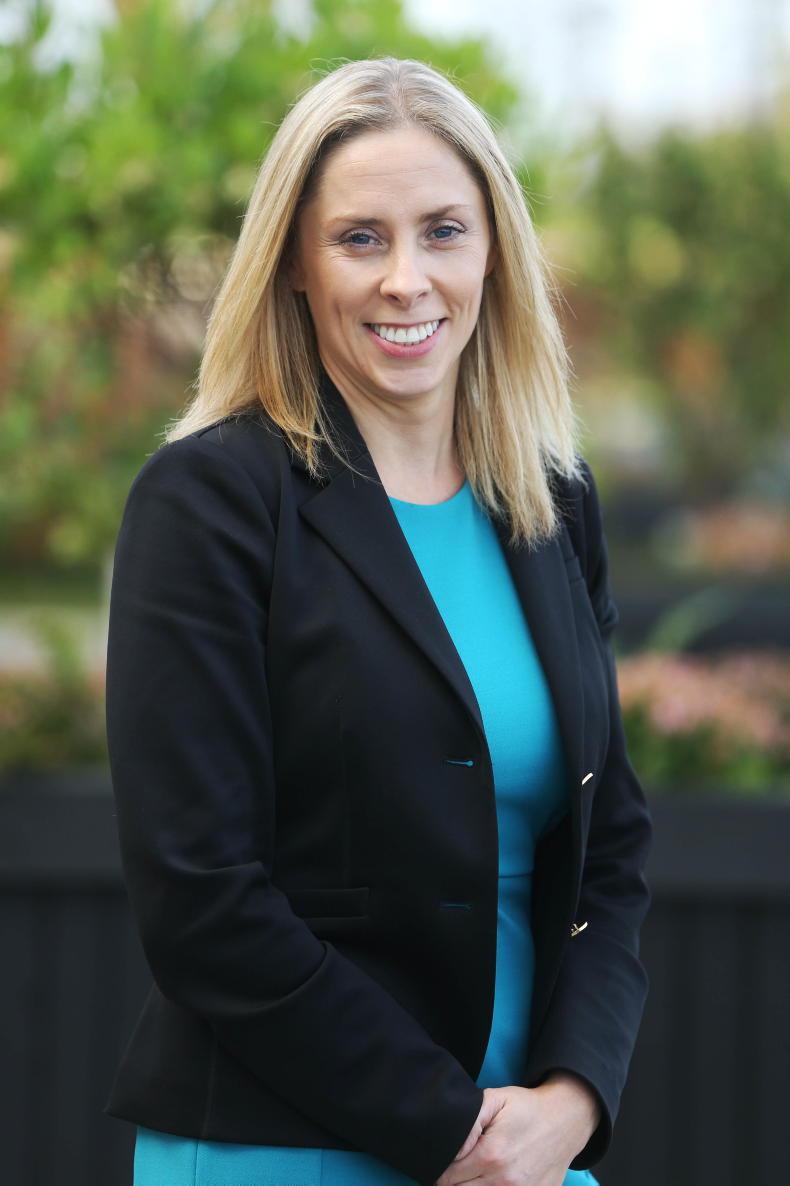
Karina Pierce lives in Roundwood with her husband Denis and two children, Niamh and Conor
Speaking about her report, she said: “The Irish agri-food industry faces many challenges, such as meeting our environmental commitments, climate change, growing anti-agriculture sentiment and addressing consumer concerns around animal welfare.
“My report sought to evaluate if the future needs of Irelands agri-food sector are being addressed through current research. The main findings of the study showed that the
research, development and innovation (RD&I) system has a key role to play in providing solutions to transform the food system into more sustainable, resilient, responsible, diverse, competitive and inclusive pathways.
“However, the Irish agri-food sector, when benchmarked against its global competitors, underperforms in terms of RD&I expenditure. Given the complexity of the issues facing the sector, a major focus on fostering a collaborative environment around key industry issues is critical as strong partnerships between industry, policy-makers and research providers will be required to ensure that science is translated into strong business, policy and management decisions.
“There is a need for a national agri-food research and innovation policy to give direction to strategy and investment decision-making by funders, research and development providers, industry and Government departments.”
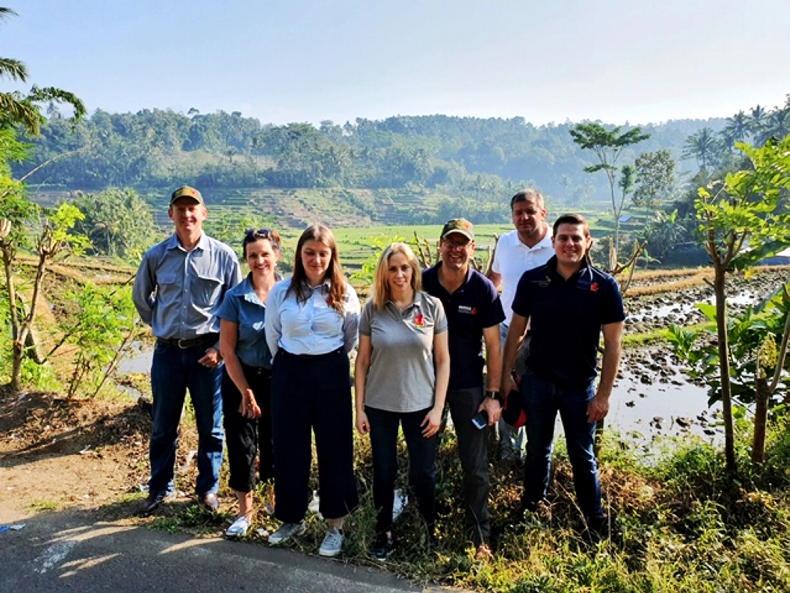
Karina Pierce on her Nuffield Ireland scholarship travels.
Findings:
The main findings of her report were:
The RD&I system has a key role to play in providing solutions to transform the food system into more sustainable, resilient, responsible, diverse, competitive and inclusive pathways.The Irish agri-food sector, when benchmarked against its global competitors, underperforms in terms of RD&I expenditure. To successfully compete in global markets, there is a need for greater investment by the industry in RD&I to close the gap with our competitors. To be transformative, there needs to be a move from component type research to a more systems approach that incorporates all elements of the food chain, from primary production through to the health and behaviour of consumers.There needs to be a major focus on fostering a collaborative environment around key industry issues. While there is significant public investment in agri-food RD&I, there have been missed opportunities to align investments across the range of funds and funders in our science system.Strong partnerships between industry, policy-makers and research providers will be required to ensure that science is translated into strong business, policy and management decisions.The increased requirement for private sector funding in major research programmes may increase the utility of the research among those companies, however an effective communication strategy is critical prove transparency and build trust with consumers.The research system needs to capture wider stakeholder opinion in the planning phase to help identify possible issues (public/consumer for example) at an earlier stage.Most research is focussed on short to medium term issues and there is not enough focus on longer term, strategic issues. In this regard, levy funded research is very focussed on immediate concerns, but as a vital source of funding for applied research, there needs to be a greater allocation of funds to strategic areas of research.Karina said: “While communication is often lower down priority list, it is vital to the success of any strategy and this communication needs to be focussed both towards those working within the agri-food industry and also to the wider public.
From a primary production perspective, continued investment in extension services is essential to communicate research findings with farmers
“Communication would be easier if there was a single sectoral RD&I strategy document for the industry with a communication strategy built around that. A lead Department, committee or head of agri food R&I to co-ordinate this would also improve communications efforts. From a primary production perspective, continued investment in extension services is essential to communicate research findings with farmers and ensure that research does not move too far ahead of practice.”
The Nuffield Ireland Lunch and learn series runs all this week featuring a 10-minute presentation at 1.30pm each day outlining the key findings of each scholar's Nuffield report. To register visit www.nuffield.ie/lunchandlearn.
Karina Pierce grew up on a sheep and suckler farm in Co Wicklow. She lives in Roundwood with her husband Denis and two children, Niamh and Conor. She has a PhD in swine nutrition, is a former lecturer in ag science at UCD, and is currently senior development advisor in the Food Division of Enterprise Ireland.
In 2019 she was awarded a Nuffield Scholarship which saw her travel the world to gather insights into her Nuffield report which explored how robust research could help future-proof the the Irish agri-food sector.

Karina Pierce lives in Roundwood with her husband Denis and two children, Niamh and Conor
Speaking about her report, she said: “The Irish agri-food industry faces many challenges, such as meeting our environmental commitments, climate change, growing anti-agriculture sentiment and addressing consumer concerns around animal welfare.
“My report sought to evaluate if the future needs of Irelands agri-food sector are being addressed through current research. The main findings of the study showed that the
research, development and innovation (RD&I) system has a key role to play in providing solutions to transform the food system into more sustainable, resilient, responsible, diverse, competitive and inclusive pathways.
“However, the Irish agri-food sector, when benchmarked against its global competitors, underperforms in terms of RD&I expenditure. Given the complexity of the issues facing the sector, a major focus on fostering a collaborative environment around key industry issues is critical as strong partnerships between industry, policy-makers and research providers will be required to ensure that science is translated into strong business, policy and management decisions.
“There is a need for a national agri-food research and innovation policy to give direction to strategy and investment decision-making by funders, research and development providers, industry and Government departments.”

Karina Pierce on her Nuffield Ireland scholarship travels.
Findings:
The main findings of her report were:
The RD&I system has a key role to play in providing solutions to transform the food system into more sustainable, resilient, responsible, diverse, competitive and inclusive pathways.The Irish agri-food sector, when benchmarked against its global competitors, underperforms in terms of RD&I expenditure. To successfully compete in global markets, there is a need for greater investment by the industry in RD&I to close the gap with our competitors. To be transformative, there needs to be a move from component type research to a more systems approach that incorporates all elements of the food chain, from primary production through to the health and behaviour of consumers.There needs to be a major focus on fostering a collaborative environment around key industry issues. While there is significant public investment in agri-food RD&I, there have been missed opportunities to align investments across the range of funds and funders in our science system.Strong partnerships between industry, policy-makers and research providers will be required to ensure that science is translated into strong business, policy and management decisions.The increased requirement for private sector funding in major research programmes may increase the utility of the research among those companies, however an effective communication strategy is critical prove transparency and build trust with consumers.The research system needs to capture wider stakeholder opinion in the planning phase to help identify possible issues (public/consumer for example) at an earlier stage.Most research is focussed on short to medium term issues and there is not enough focus on longer term, strategic issues. In this regard, levy funded research is very focussed on immediate concerns, but as a vital source of funding for applied research, there needs to be a greater allocation of funds to strategic areas of research.Karina said: “While communication is often lower down priority list, it is vital to the success of any strategy and this communication needs to be focussed both towards those working within the agri-food industry and also to the wider public.
From a primary production perspective, continued investment in extension services is essential to communicate research findings with farmers
“Communication would be easier if there was a single sectoral RD&I strategy document for the industry with a communication strategy built around that. A lead Department, committee or head of agri food R&I to co-ordinate this would also improve communications efforts. From a primary production perspective, continued investment in extension services is essential to communicate research findings with farmers and ensure that research does not move too far ahead of practice.”
The Nuffield Ireland Lunch and learn series runs all this week featuring a 10-minute presentation at 1.30pm each day outlining the key findings of each scholar's Nuffield report. To register visit www.nuffield.ie/lunchandlearn.






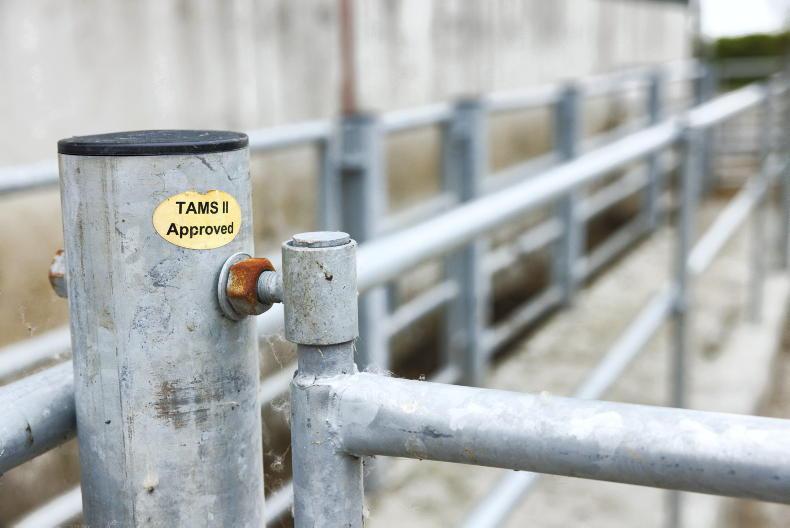


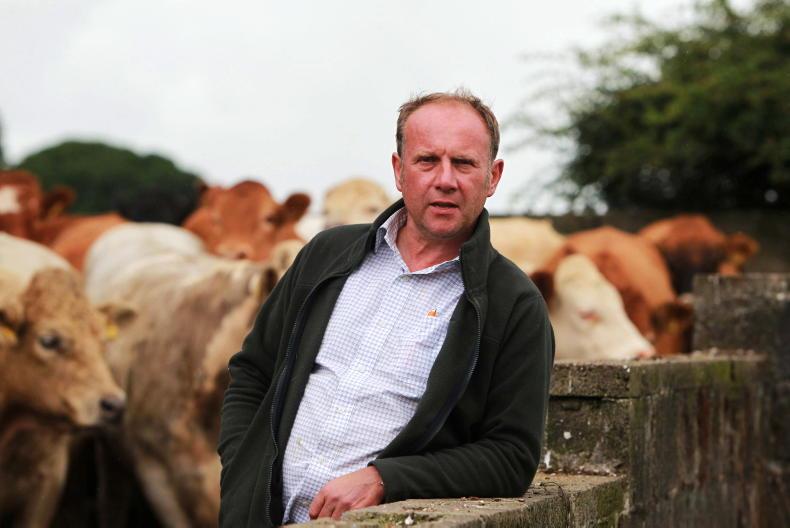
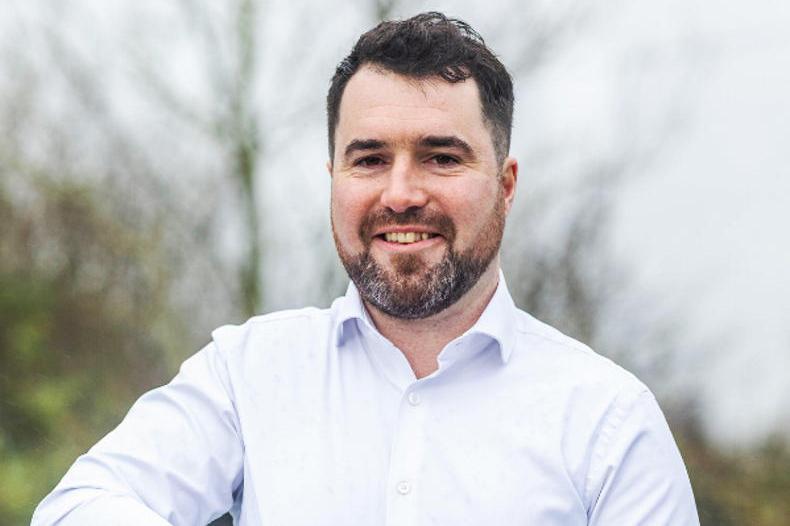
SHARING OPTIONS